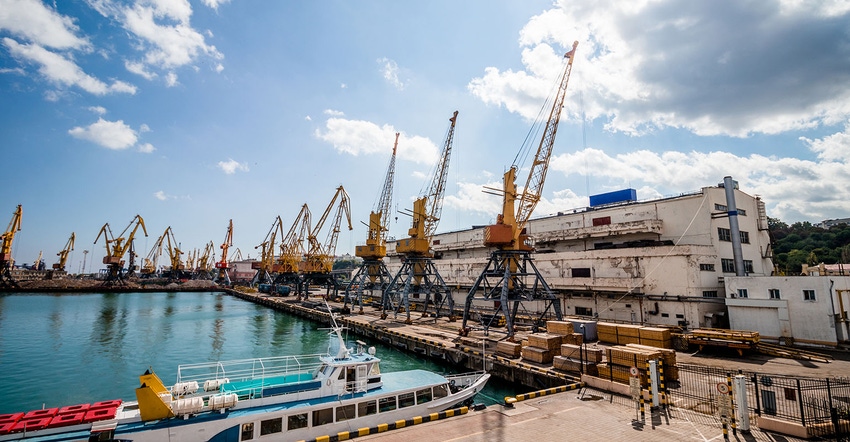
On Feb. 24, Viktor Korobko was awakened by the sound of bombs exploding only a couple of miles from his hometown of Odessa, Ukraine. He immediately gathered up his family of 5 and drove them across the border to Moldova, and later relocated them to Romania.
Korobko is a director of one of the oldest physical commodity trading firms in Ukraine. I was privileged to interview him as he shared his unique market insights into how the Russian invasion has affected Ukrainian farmers and the country’s agriculture industry.
Port damage minimal
Viktor says that while there has been some damage to port facilities, it is minimal and nothing that can’t be fixed in a couple of days. However, as Russian “pirates” control the Black Sea region, all port infrastructure activity is effectively shut down. He does not believe that it will come back while the war is on. In other words, the war will need to come to an end before Ukraine can begin exporting again.
Korobko says some crops are being exported through inner waterways along the southwest corner of Ukraine along the Romanian border. There are also small shipments that may be hauled by truck or waterway, but these are small loads -- 10% of normal at best. Ukraine was uniquely set up for mass ocean waterway exports. There is discussion going on to set up makeshift export facilities in regions less impacted by the war; However, they don’t necessarily have the manpower or supplies to do this.
Patriotic plantings
Korobko says farmers are eager to plant and consider it their patriotic duty to do so. “Some 20% of the active ag workforce, mainly young farmers, are fighting the Russians,” he says. The older generation is ready to do their part to get fields planted, he adds.
Viktor believes that ultimately, Ukrainian farmers will plant a fair portion of the corn and wheat crops, but production will be hampered. He estimated that wheat production could be off by 35% and corn production off by 50%.
“Planting will be very irregular,” he says. Farmers may get inputs like fertilizer or diesel, just not all at once and at much higher prices. They may plant a field, stop for a while until they get more fuel, then plant another field. This will obviously disrupt their planting season to the point that yields will be lower.
He estimates that corn will be impacted more by farmers deciding to plant other crops, as farmers are aware that the corn market depends on exports. Since they can’t export, they will choose other crops that are consumed domestically like sunflowers or other small grains.
The war’s duration
Much of the fallout from this war is linked to its duration. A quick end to the war would mean exports could come back online soon. Of course, nobody can say for sure when that will happen. Pentagon officials argued that it was a possibility that some form of fighting could go on for ten years. Korobko is more optimistic, believing that the war will come to an end sometime later this year.
You can watch the full video:
Matthew Kruse is President of Commstock Investments. He can be reached at 712-227-1110.
Futures trading involves risk. The risk of loss in trading futures and/or options is substantial and each investor and/or trader must consider whether this is a suitable investment. Past performance is not indicative of future results. Trading advice is based on information taken from trades and statistical services and other sources that CommStock Investments believes to be reliable. We do not guarantee that such information is accurate or complete and it should not be relied upon as such. Trading advice reflects our good faith judgment at a specific time and is subject to change without notice. There is no guarantee that the advice we give will result in profitable trades.
The opinions of the author are not necessarily those of Farm Futures or Farm Progress.
About the Author(s)
You May Also Like






